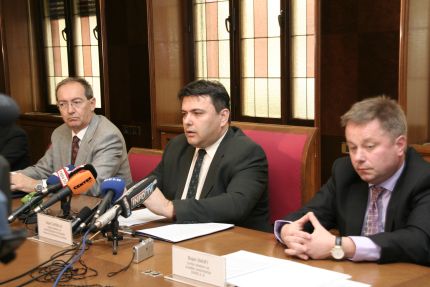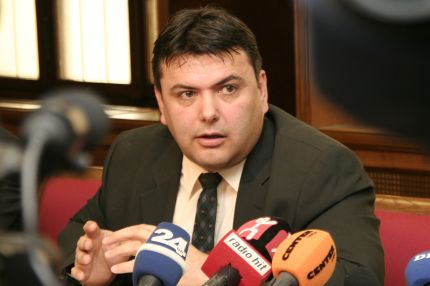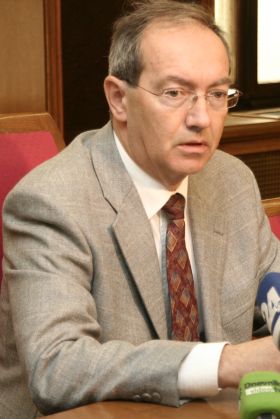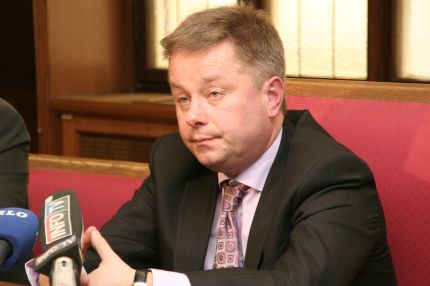The International Credit Card campaign organised by the SECI centre (Southeast European Cooperative Initiative) is the fourth such campaign in recent years, the purpose of which is to find stolen vehicles on roads and during border controls, as well as to uncover and prevent the internationally organised trade in stolen vehicles.
The campaign in Slovenia was divided into two parts: throughout the campaign, police officers from police stations within the country and on border crossings, as part of their regular duties, carried out stricter monitoring of vehicles on roads, with an emphasis on finding stolen vehicles. The second part of the campaign consisted of enhanced monitoring of vehicles on motorways. For this, the police used a particular working method, whereby a motorway is completely closed and the traffic directed into a service area, where the vehicles are then selectively checked. Motorway road blocks were carried out on the territory of all the Police Directorates, with the exception of the Slovenj Gradec one. They lasted four hours every night and took place in pre-determined locations. Due to the demanding nature of the work and for greater efficiency, the road blocks were not carried out simultaneously, but staggered in such a way that at different times the whole motorway system was covered.
 Road blocks for monitoring vehicles on roads have been carried out by the police since 2004 as part of their regular monthly work. This is a working method that the Slovenian police modelled on that used by Western European police forces and within which a partial road block is temporarily set up on a motorway. The aim is to check vehicles and uncover violations and criminal offences, mainly those relating to car crime (stolen and reconditioned vehicles), whilst also uncovering the transportation of stolen objects and works of art, prison escapees, prohibited drugs, illegal transportations of weapons, and so on. With such road blocks it is possible to increase supervision of all the violations of road traffic regulations on the Slovenian motorway network (with an emphasis on checking the psycho-physical condition of drivers), to increase monitoring of movements of people in order to prevent unauthorised entries and stays in Slovenia, and to prevent and find trans-border international crime.
Road blocks for monitoring vehicles on roads have been carried out by the police since 2004 as part of their regular monthly work. This is a working method that the Slovenian police modelled on that used by Western European police forces and within which a partial road block is temporarily set up on a motorway. The aim is to check vehicles and uncover violations and criminal offences, mainly those relating to car crime (stolen and reconditioned vehicles), whilst also uncovering the transportation of stolen objects and works of art, prison escapees, prohibited drugs, illegal transportations of weapons, and so on. With such road blocks it is possible to increase supervision of all the violations of road traffic regulations on the Slovenian motorway network (with an emphasis on checking the psycho-physical condition of drivers), to increase monitoring of movements of people in order to prevent unauthorised entries and stays in Slovenia, and to prevent and find trans-border international crime.
Employees from the MCRS and customs also participated in the campaign, identifying violations that are within their competences.

The Head of the Property Crime Section at the Criminal Police Directorate Dejan Garbajs
The police has been carrying out these activities as part of their regular duties, with the exception of monitoring vehicles on motorways. The latter activity involved 181 police officers, criminal police officers and forensic investigators (i.e. 156 police officers and criminal police officers and 25 forensic investigators). During the campaign, 5,116 vehicles were checked, of which 2,488 were foreign. Seven sought vehicles were found and seized, four of which had been stolen abroad. In addition, ten other criminal offences and a number of violations were dealt with. Nine people were arrested, one because of a European arrest warrant, two because of the possession of approximately 0.5 kg of marihuana, and the others because of too much alcohol in their blood.
According to Dejan Garbajs, the Head of the Property Crime Section at the Criminal Police Directorate, the campaign was a success. "In our estimation, the campaign results were positive. Irrespective of the number of vehicles found and seized and other criminal offences and violations uncovered and dealt with, the aim of the campaign was also prevention."
He emphasised that the working methods of the Slovenian police in connection with car theft have in recent years shown positive results.
The total number of stolen and seized vehicles has since 2006 fallen from 1,325 to 1,197 in 2007 and to 904 in 2008. Furthermore, the share of stolen and seized vehicles per 100,000 inhabitants in Slovenia is one of the lowest in the European Union.

The assistant to the head of the Investigation Section at the Customs Administration Mirko Baćac

The executive director responsible for toll-collection implementation at the MCRS Bojan Banfi

